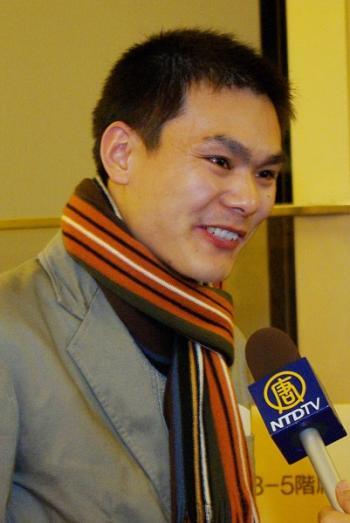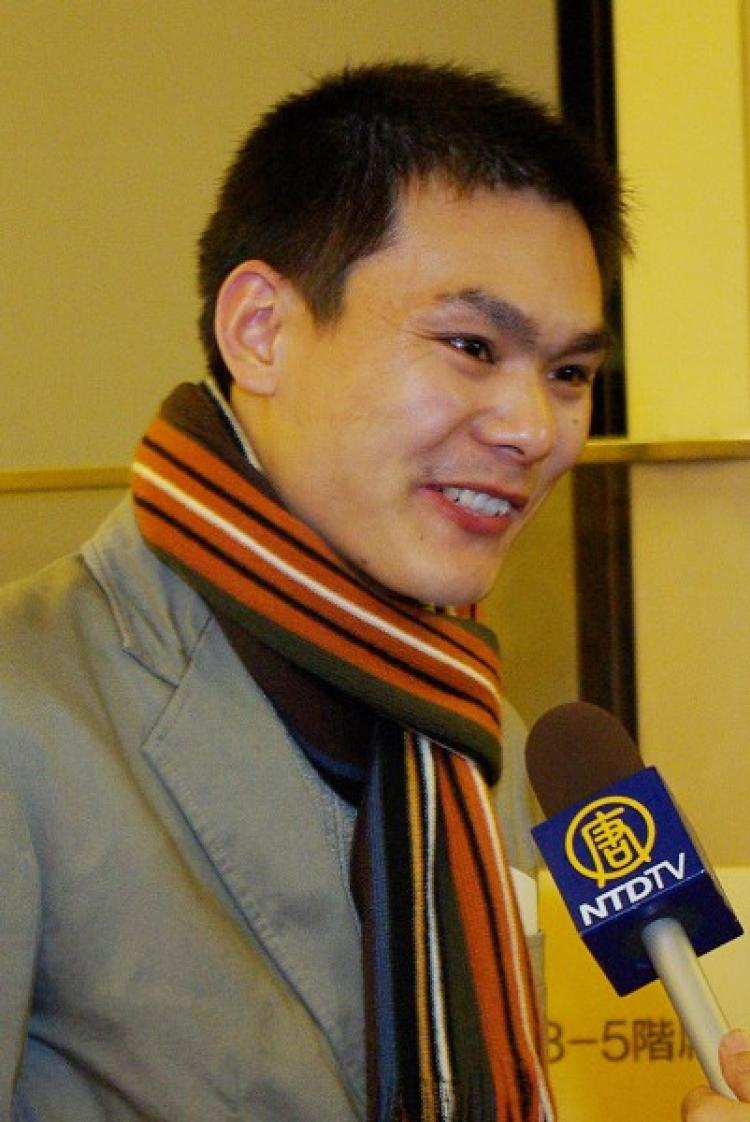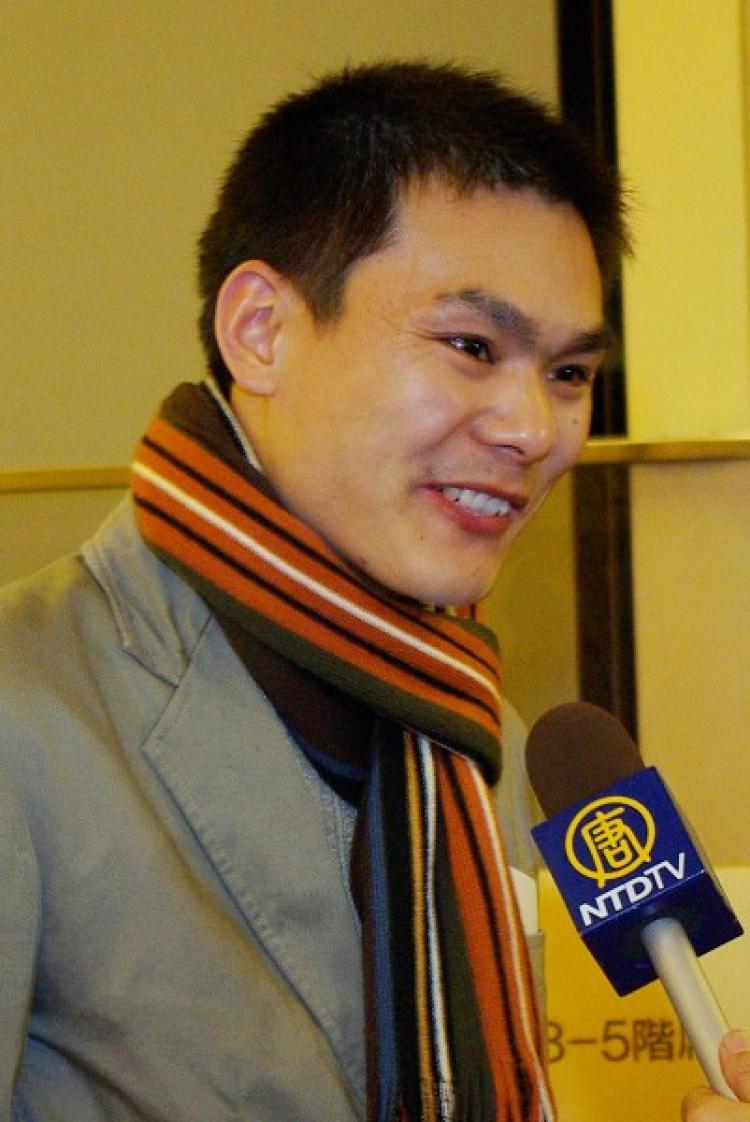NAGOYA, Japan—Divine Performing Arts (DPA) International Company staged its third Japanese show at the Aichi Prefectural Art Theater Concert Hall on February 13 in Nagoya, home to auto making giants such as Toyota, Honda, and Mitsubishi Motors.
Among the audience was Yongjun Wu, a mainland Chinese who studied abroad in Japan and thereafter stayed in Nagoya to work. Upon watching DPA for the first time, he said that he wished he had come to last year’s show.
“It’s very moving. I have never seen such show before. It is such a pity that I didn’t come last year, but anyways, I watched it this year. And next year I am definitely coming again. All the programs are wonderful, because they all display China’s traditional things. Whether the dances or the solo performances, they are all very touching.”
Monk Ji Gong Abducts the Bride greatly inspired him. The program delineates one of the most adored figures in Chinese history. The seemingly-crazy monk, who is also a deity, interrupts a wedding scene to warn the villagers about an upcoming rock slide, yet the inhabitants remain indifferent toward his warning. At last, Monk Ji Gong has to come up with an unorthodox solution to save the people from the catastrophe.
Mr. Wu said that he believes in Ji Gong’s warning and its symbolism. “The story of the monk Ji Gong, I think it is really possible to have such a situation.”
Another program Mulan Joins the Battle also touched him deeply.
“I hope this Divine Performing Arts can eventually play in mainland China. I think this program can educate many Chinese people. Under the six-decade rule of the Chinese Communist Party, as far as I know, values such as filial connections are vanishing in mainland China. Seeing such a program is very shocking, I think I haven’t done well in this aspect. I left my parents all alone, and I am the only child; I feel very guilty for that.”
He said that although he saw programs in mainland China depicting similar people as the programs in DPA, the feeling is completely different.
“The Tibetan dance and the Mongolian Chopsticks left a very deep impression on me. I have seen dance of the Yi ethnic group before in China, but it’s not as pure and natural as that of DPA. The unique temperament of the dancers makes me feel that they are all very virtuous. Ordinary people cannot perform such a show. That’s my feeling from the bottom of my heart.”
Mr. Wu said that due to the prevalent atheistic theory in mainland China, he denied the existence of divine beings, yet, upon watching DPA, “My greatest achievement in coming to Japan is that I now believe in gods.”
“After coming to Japan, I was able to read The Epoch Times, and later learned about New Tang Dynasty Television. Now I believe in gods. I think at least believing in gods can control mankind’s greediness. It can purify and improve people’s hearts and morality.”
On Friday night, many mainland Chinese shared similar impressions. Mr. Wang, who has lived in Japan for two years, was teary-eyed even as he walked out of the theater. “Very good, very good, very good. I cannot really express myself fully, but I think it’s pure, compassionate, and beautiful. I have never seen such thing. It’s beautiful—all the programs. The programs are like stories.”
For more information please visit DivinePerformingArts.org







